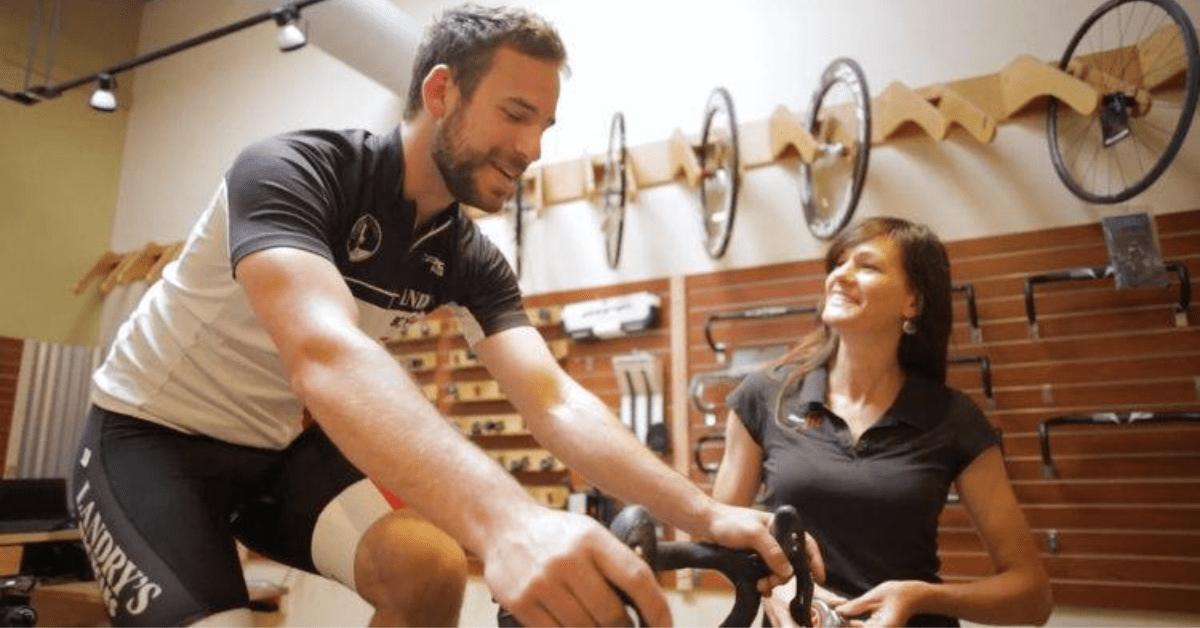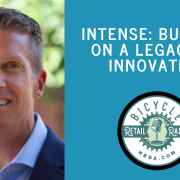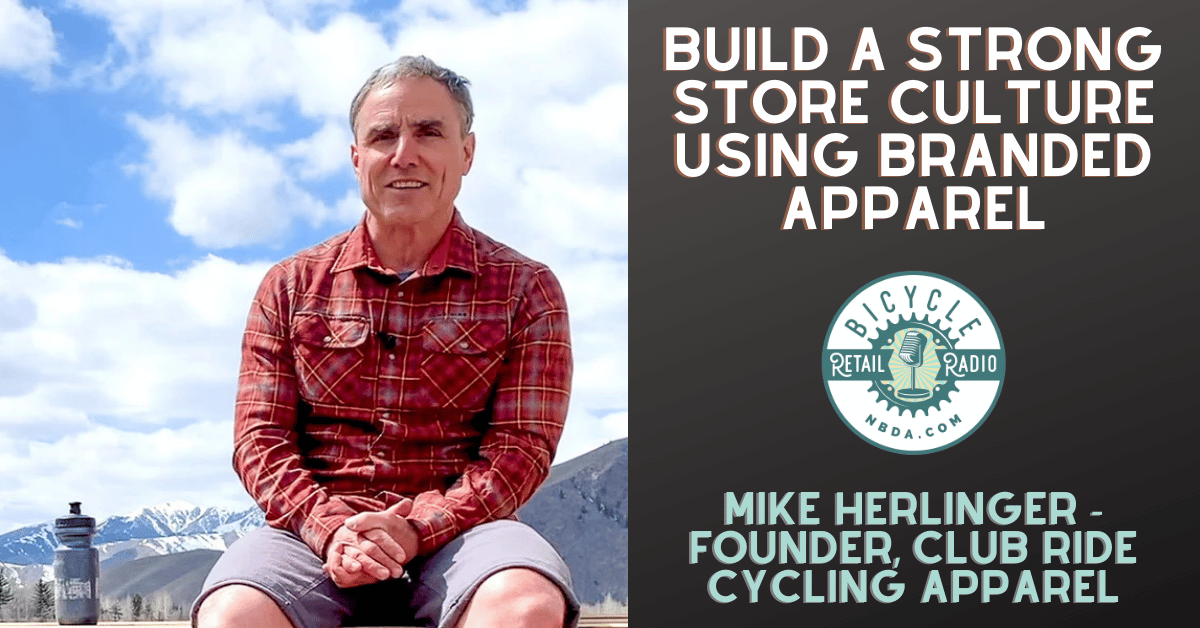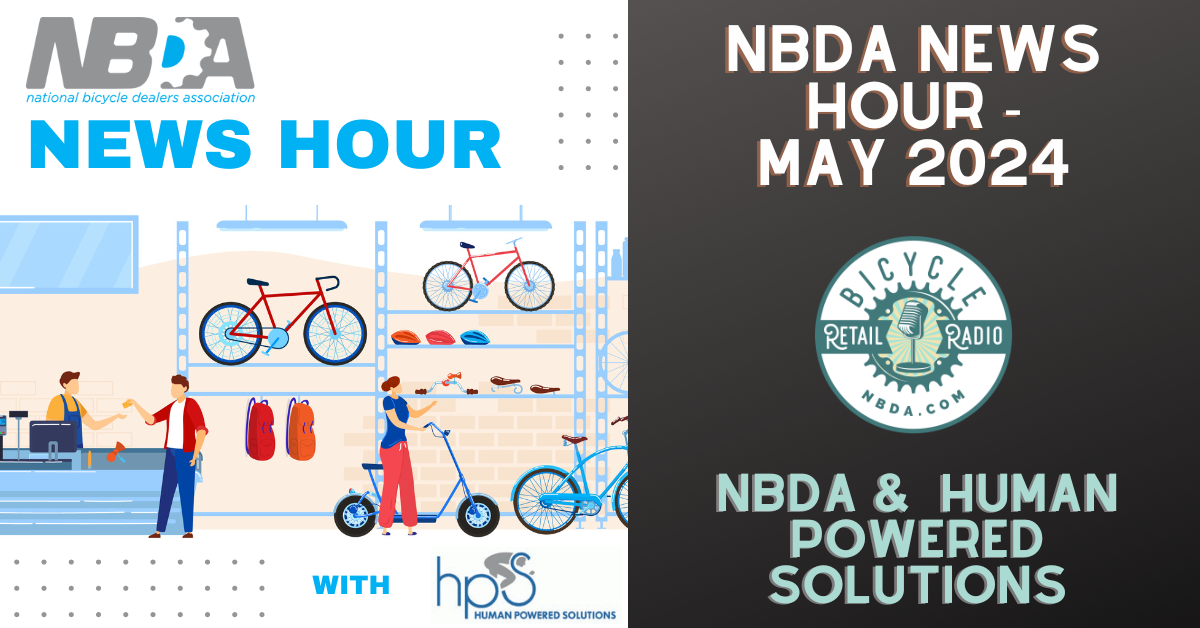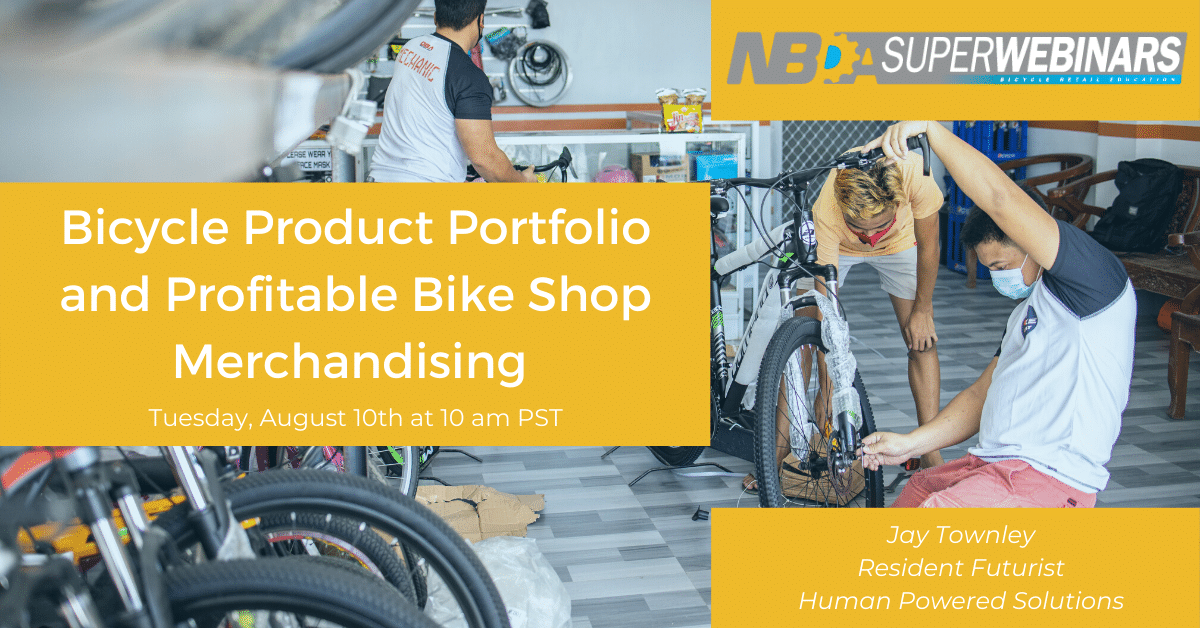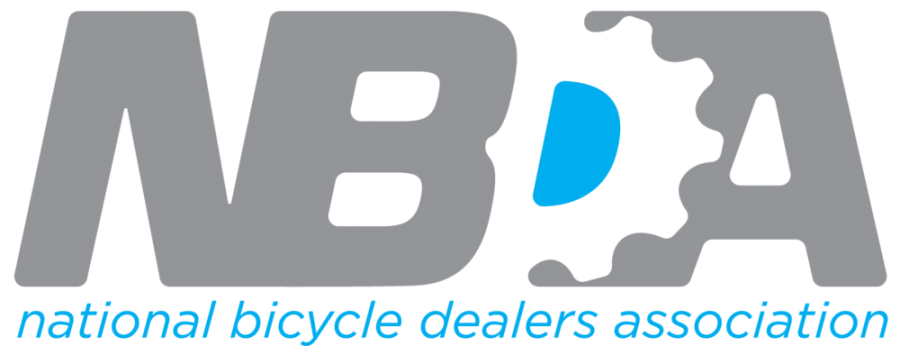Ask a Dealer: Seasonal Employees
Landry’s Tom Henry tells us how he finds, hires and trains quality seasonal employees
It’s the heart of summer and, if you’re in a seasonal locale, your shop has probably been slammed for weeks. The door keeps swinging, the sales floor buzzes with customers, and your mechanics are working through a week-long backlog of service orders. This is, after all, the money-making season, when you make up for all those grueling winter months of losing money to rent and utilities. But to make the most of it, you need good seasonal employees.
That’s easier said than done, especially when you consider the challenges our industry presents: relatively low wages for positions that require either 1) a specific and well-developed mechanical skill set or 2) deep knowledge of a wide range of technically complex products, and the ability to communicate their purpose and value in clear and simple terms. With that in mind, we spoke to Tom Henry of Landry’s Bicycles, who’s been developing talent across the highly successful seasonal New England retail chain for decades. He had a lot to say about how best to find high-quality seasonal employees, how to train them quickly and efficiently, and the best way to keep them sharp for summers to come.
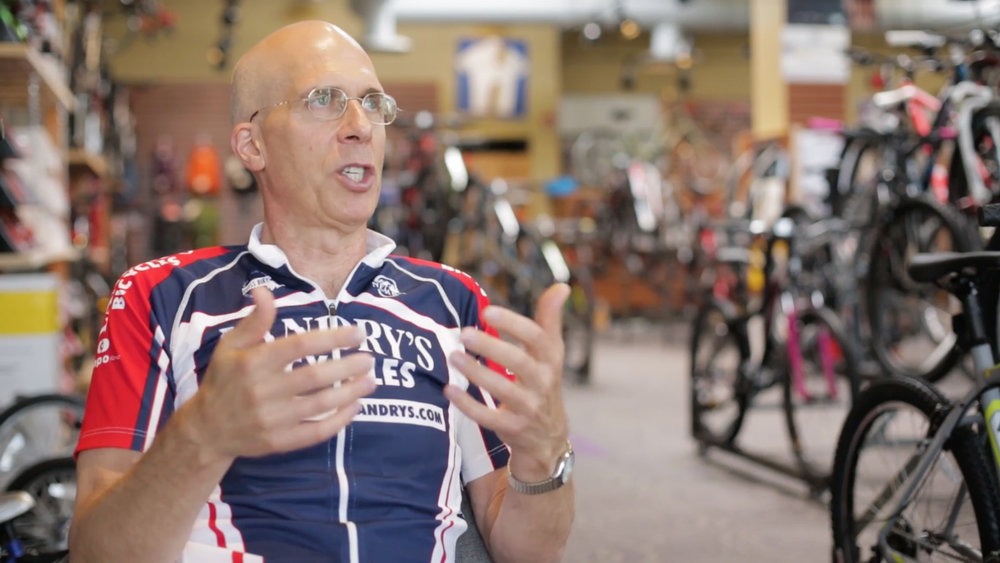
Tom Henry of Landry’s Bicycles
How do you find quality seasonal employees?
We have a website that’s always advertising, but really we tend to hire our customers and their kids. I’ve always preached to the staff that they need to be on the lookout for good people. There wasn’t a day when I saw somebody with promise who I didn’t want to meet, who I didn’t want to have lunch with and get to know better. I was always interested in learning about the kids in the area because we have to in order to make the economics of this thing work. With a seasonal business, you depend on having some lower-paid seasonal employees.
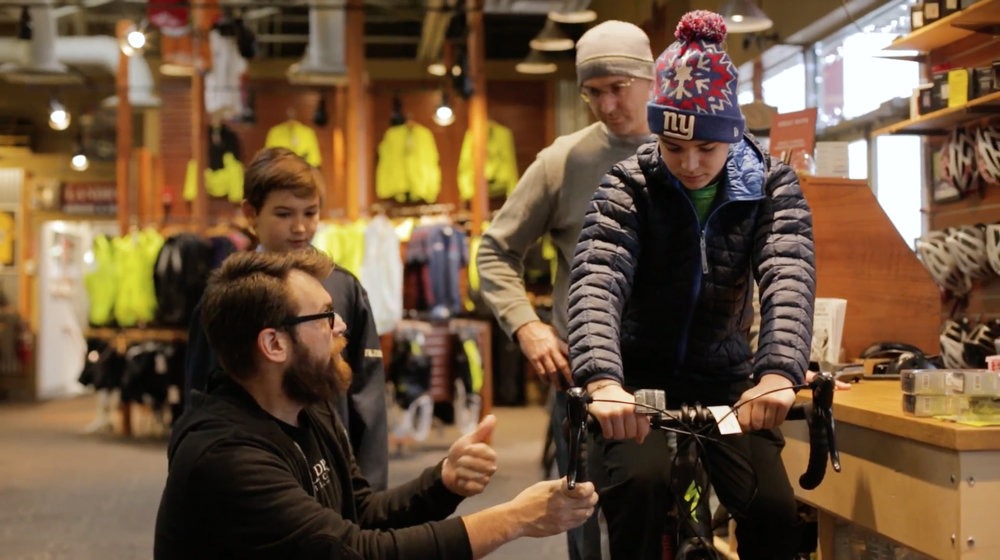 In exchange, the kids are getting a great education along the way. We always wanted it to be a vital part of the parents’ mission to see their kids develop and grow and be mature and develop a good value system and work ethic. I always believed that Landry’s is among the finest educational institutions for a young person to be in. It sounds like I’m overreaching, perhaps, but it’s always been my attitude that we’ll be second to none in terms of education. There’s the technical stuff you’re learning, of course, but also social skills and life skills. That was always a big part of our mission, and I think we were really good at delivering, and the parents were extremely grateful for Landry’s. That’s always been the spirit of it. In the past six years since becoming an ESOP, we’ve had very little turnover, and I suppose that has something to do with having an ownership stake in the company. It felt to me like we were starting to become older as a company, but with the Baby Boomers aging out, we have a whole new generation coming in. One of the goals we’ve had more recently is to reinvigorate our outreach to young people—the 16-year-olds and 17-year-olds—in our communities. We want the best and the brightest kids to come in here and believe it’s a really awesome job to have.
In exchange, the kids are getting a great education along the way. We always wanted it to be a vital part of the parents’ mission to see their kids develop and grow and be mature and develop a good value system and work ethic. I always believed that Landry’s is among the finest educational institutions for a young person to be in. It sounds like I’m overreaching, perhaps, but it’s always been my attitude that we’ll be second to none in terms of education. There’s the technical stuff you’re learning, of course, but also social skills and life skills. That was always a big part of our mission, and I think we were really good at delivering, and the parents were extremely grateful for Landry’s. That’s always been the spirit of it. In the past six years since becoming an ESOP, we’ve had very little turnover, and I suppose that has something to do with having an ownership stake in the company. It felt to me like we were starting to become older as a company, but with the Baby Boomers aging out, we have a whole new generation coming in. One of the goals we’ve had more recently is to reinvigorate our outreach to young people—the 16-year-olds and 17-year-olds—in our communities. We want the best and the brightest kids to come in here and believe it’s a really awesome job to have.
How do you advertise?
Every store manager has been taught to always be looking, so you hire your customers. We start there, through word-of-mouth. That’s the key thing. We’re also very active in youth mountain bike leagues here; we’ve been working on that for years now. But it’s really word-of-mouth, it’s talking to our customers, it’s talking to their parents because you meet them when they buy a bike. That’s the simplest answer.
We also have a website, with a video about why it’s great to work at Landry’s. We’re not actively hiring right now, but when we are, we move that to the homepage, so we tend to get a lot more calls. And we’ll put signs up in the doors, and at the cash registers of all seven stores.
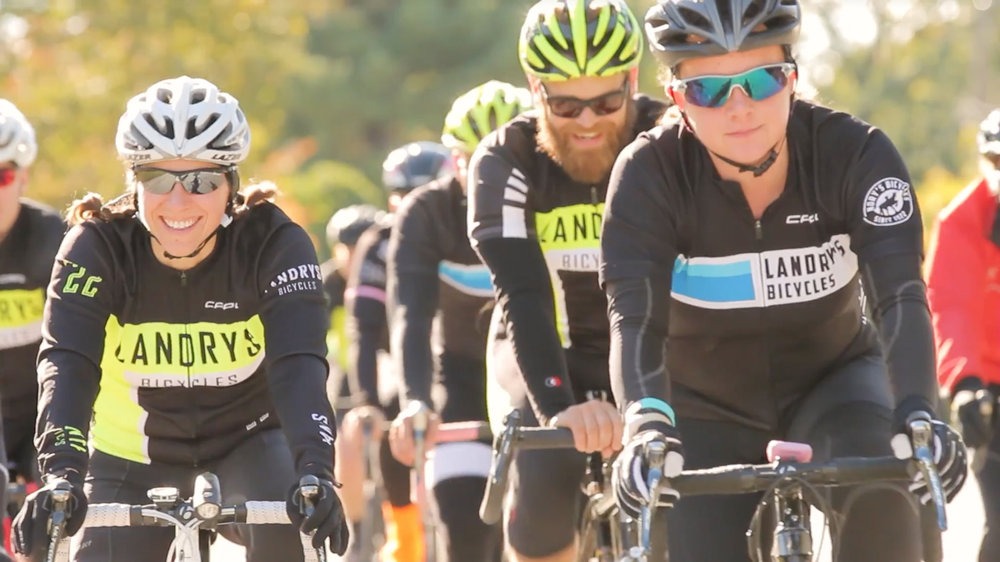 Do you tend to hire young people—high school or college kids—or adults?
Do you tend to hire young people—high school or college kids—or adults?
The key is to hire the right people. We do very careful interviews, we explore very deeply who you are, what your own core values are, and whether they match up with Landry’s. We’re looking for people who have a real passion for this, who have a passion for people. Most of the hiring we do with young people is for sales, by the way, because mechanics have a longer development curve.
That said, we love it when we can find kids at the high school level; we’re hoping for a couple of years in high school. If you get people young, you can mold them and grow together. Ideally, we can get them for four years in college; we don’t expect we’ll be keeping everybody after college, but we do get some. But if you can get 4, 5, 6 seasons out of the young people, that’s usually fabulous. We’ve got some incredible young people, who are paid pretty low—usually minimum wage, which is $11/hour—but that’s decent money for a high schooler, especially if you love the work. If you hire the right young people, who are super high-energy, really bright, really good at talking with people, it can be an incredible win, because you only have them from June through the end of August/early September, and that’s when all of our business is done. We make all our money from the end of April through mid-September, so to be able to have seasonal, part-time people is enormously beneficial. To keep full-time people year-round is part of our problem financially, in terms of profitability. You can’t be keeping people in the offseason who aren’t going to be part of the rapid development of the seasonal help. So the people who stay year-round have to be good at developing people. (continued below)
We’re located in the wealthy community of Bainbridge Island, where our wages aren’t much of an enticement to teenagers to work. The island is also, for the most part, missing the 18- to 25-year-old demographic that has historically kept bike shops running across the country. When we need seasonal employees, we primarily look to retirees who want something to do with their day (many old guys insist on working for FREE!).
—Paul Johnson, Classic Cycle, Bainbridge Island, Washington
(continued from above)
How do you quickly develop people?
We have lots of systems. There’s a triad of things that most people have to be trained in:
- Systems of the Company (the procedural things, incl. IT systems for processing orders, transferring products, etc)—A new employee will be in for a number of days or even a week, just getting trained in an offsite conference room before coming into the shop.
- Product Training—The industry has gotten better and better at this piece. We do a lot of videos, and we use Miyagi, where people get ranked within the company based on how much training they’ve completed (and they can do it anytime, anywhere), so that’s been very effective. Overall, this is a combination of industry training and our own training.
- Host/Sales/Hospitality Training—We have 17 lessons, we have videos, we do live training, we do simulations and we practice. We put our new hires out on the floor fairly quickly, but they shadow experienced salespeople and get individualized coaching; plus they go back through each of the 17 lessons as they develop. After all of that, there’s still a bit of an apprenticeship, because there are some things you just can’t learn in the classroom. Sometimes we create an explicit “buddy system,” where you’re paired with somebody’s who’s going to be your mentor, and you do some shadowing and learning. And we’re really hoping to get multiple years from each hire—so you get them when they’re 17, they come back at 18 and they’re starting to really contribute and grow, and if you can keep them through the college years, then it’s miraculous because they become these bright, young, energetic, passionate, beautiful people.
Do do you hire interns?
The regulations around internships for every business in Massachusetts are really strict now. You have to pay people. We used to do them, but we don’t touch them anymore, which is a loss, because a lot of parents want us to help develop their kids.
What roles do you typically hire seasonal employees for—service, sales, or both?
Most of the hiring we do with young people is for sales because mechanics have a longer development curve.
For great mechanics, we start in the bike building, and they just learn how to work on new bikes and do that over and over and over again. Some of our mechanics come out of the bike assembly team, which is about 7 or 8 people, and we sometimes hire mechanics from outside the company, but we prefer always to be developing our own people. We’ve had some good hires from outside, but not too many, because there are so many negative cultural attitudes they’ve picked up. You keep wishing you could just hire the skills, but you also pick up some of the attitudes that are often the reason somebody’s left another shop. In terms of culture, nothing beats honesty, openness, collaborative ability, respect for others, a passion for cycling, really feeling like a missionary for cycling, and a commitment to the profitability of the company. A lot of people come from other businesses, and they’ve never had a positive feeling about the institution they worked for, they didn’t have that developed sense of respect for everything, including the finances of the business. You just can’t have negative attitudes going around inside the company; it starts to rot, and it falls apart fast.
Is there anything else special you do?
We have well-defined training modules, and people who can deliver those modules. It’s still a big challenge, by the way. It doesn’t run beautifully. We often have to get people working on the sales floor before they’re ready. We’re always striving to have it streamlined, though. Each store has to have a key coach who’s always spending time observing, coaching and developing, and bringing people up higher and higher. It doesn’t matter how much you train people, everything tends to decline if you don’t constantly bring it up.
The highest value skill—and gift, really—is to have that eye for, that passion for, that love of developing people toward perfection in what we call “The Landry’s Experience.” It’s transformational hospitality, and we want to make a big difference in people’s lives, and that comes down to every little detail—the smile, the greeting, the way you acknowledge customers as they walk in, the ability to multitask, forecasting what’s going on so your customers feel really hosted, respected and cared for—and that’s on top of the skill, professionalism and product and mechanical knowledge. If those aren’t the best, then none of the hospitality stuff works, does it? So you have to work on all three of those fronts; it’s a really complicated business. We are striving for perfection, but we are so far from it.
Service Up to Snuff
During the summer months, we often add a young weekend sales person, generally sourced from one of the teams we sponsor or from a referral. In addition, whenever we hire a mechanic, we ask them to work a full unpaid day alongside our Service Manager, who observes their quality and speed of work, as well as how they interact with customers. Good mechanics are much harder to find than quality salespeople.
—Skip McDowell, Nytro Multisport, Encinitas, CaliforniaThe NBDA has been here since 1946, representing and empowering specialty bicycle dealers in the United States through education, communications, research, advocacy, member discount programs, and promotional opportunities. As shops are facing never-before-seen circumstances, these resources offer a lifeline. Together, we will weather this. We at the NBDA will not waver in our commitment to serving our members even during this challenging time—but we need your support.
Now is the time to become a member as we join together to make one another stronger. Whether you’re a retailer or an industry partner, your membership in the NBDA is one of the best investments you’ll make this year.
Learn more about the benefits of being a member and join now.

